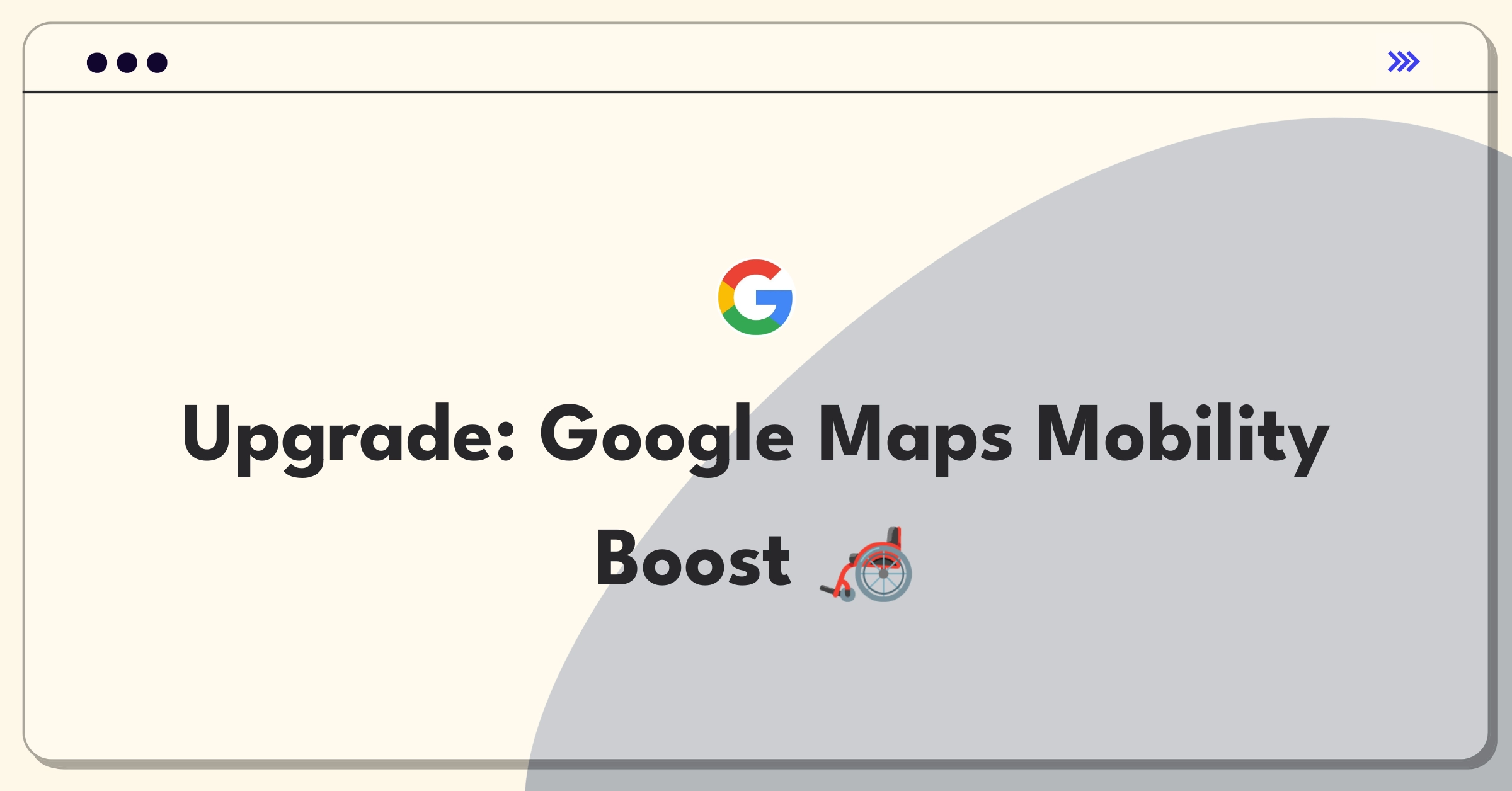Introduction
Google Maps is a powerful navigation tool used by millions worldwide, but it can be significantly improved to better assist users with mobility challenges. As we explore this opportunity, we'll focus on enhancing accessibility features, improving route planning for those with specific mobility needs, and creating a more inclusive user experience.
Framework overview
I'll be using a structured approach to address this product improvement challenge, starting with clarifying questions, then moving on to user segmentation, pain point analysis, solution generation, evaluation, and finally, metrics for measuring success.
Step 1
Clarifying Questions (5 mins)
- Why this matters: Different mobility challenges require distinct solutions.
- Hypothetical answer: We're primarily focusing on wheelchair users, but also considering other mobility impairments.
- Impact: This will guide our feature development to prioritize wheelchair accessibility while keeping other mobility needs in mind.
- Why this matters: Understanding the existing features helps identify gaps and improvement areas.
- Hypothetical answer: Google Maps has some basic accessibility features like wheelchair-accessible routes, but user feedback suggests they're not comprehensive or reliable enough.
- Impact: This information will help us focus on enhancing existing features and developing new ones to fill critical gaps.
- Why this matters: Compliance with accessibility standards is crucial for legal and ethical reasons.
- Hypothetical answer: Yes, we need to comply with Web Content Accessibility Guidelines (WCAG) 2.1 and relevant local accessibility laws.
- Impact: This will ensure our improvements meet legal requirements and follow best practices in accessibility.
- Why this matters: User data and feedback are crucial for understanding real pain points and needs.
- Hypothetical answer: We have limited data specifically on users with mobility challenges, but we've received feedback through app store reviews and customer support.
- Impact: This suggests we may need to conduct additional user research to inform our improvements.
Based on these answers, I'll assume we're focusing primarily on wheelchair users while keeping other mobility challenges in mind, that our current accessibility features need significant improvement, and that we need to conduct more targeted user research.
Tip
At this point, you can ask interviewer to take a 1-minute break to organize your thoughts before diving into the next step.
Subscribe to access the full answer
Monthly Plan
The perfect plan for PMs who are in the final leg of their interview preparation
$66.00 /month
- Access to 8,000+ PM Questions
- 10 AI resume reviews credits
- Access to company guides
- Basic email support
- Access to community Q&A
Yearly Plan
The ultimate plan for aspiring PMs, SPMs and those preparing for big-tech
- Everything in monthly plan
- Priority queue for AI resume review
- Monthly/Weekly newsletters
- Access to premium features
- Priority response to requested question


.png)